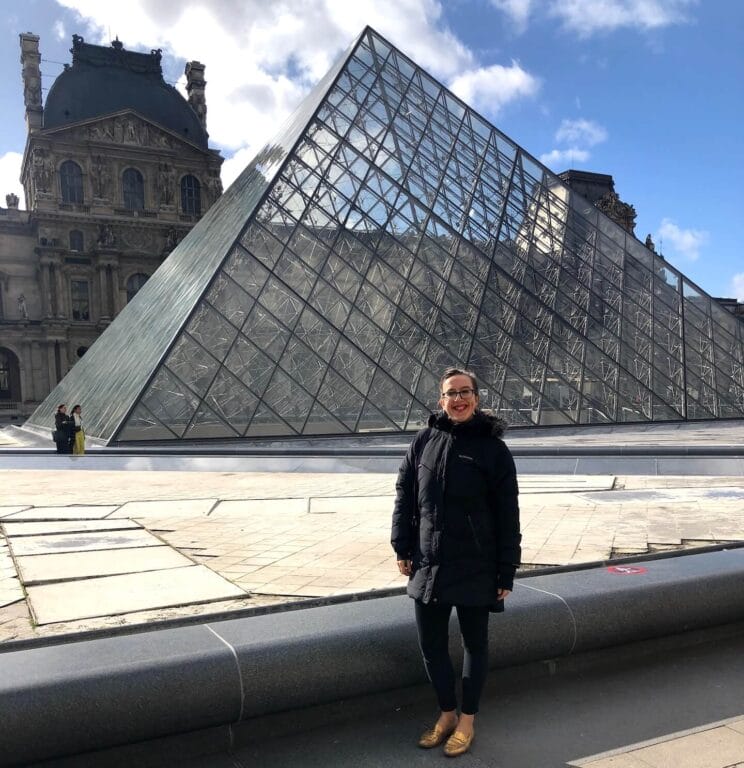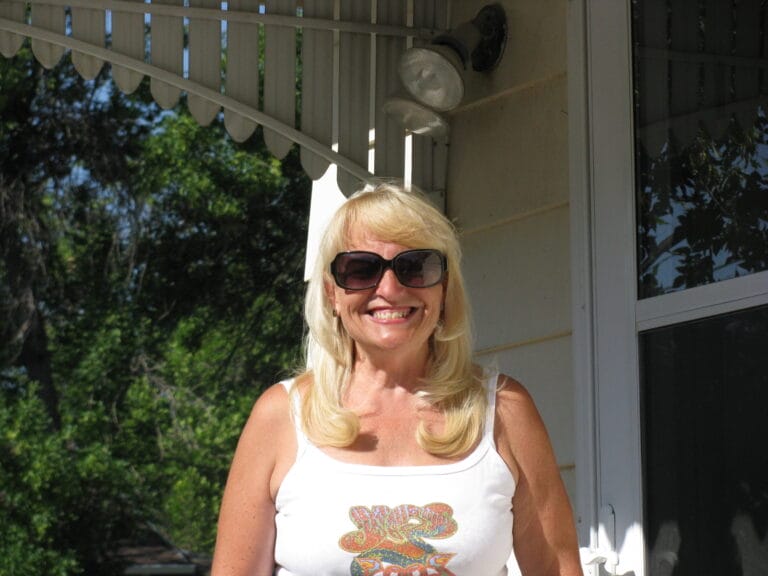
Noncredit language students bond in Italian 3 class
A cadre of dedicated Italian language students hungry for more in-depth study lobbied UW–Madison Continuing Studies to revive a class that had been shelved for some time. Instructors heard their plea, and Italian 3 was reborn.
The students, who began in Italian 1, bonded as a group and progressed through Italian 2. When that was done, they argued for the next logical step in their Italian language adventure.
“This Italian group was so spirited and committed that they contacted me and assured me they could get enough participants, so I said, ‘Let’s go for it,’” says Sage Goellner, a UW–Madison associate professor of French and continuing studies and director of the noncredit Italian program. “It was a grassroots Italian 3 class, and hopefully we can keep it going for years to come.”
Cohesive learning community
Italian 1 is a 13-week class that focuses on language and culture, with an emphasis on travel, because many of the students are interested in visiting Italy. Italian 2 plumbs deeper into the language, helping to improve students’ vocabulary and ability to have everyday conversations.
Italian 3 wades into more sophisticated language use. Both Italian 2 and 3 are 10-week classes, and all three offerings meet weekly.
Sandra Vega-Semorile, who works on campus as a science teaching specialist for the PEOPLE program, convinced a group of eight to 10 Italian students to push for the seldom offered Italian 3 as a way to deepen their knowledge of the language. Vega-Semorile took Italian 2 – twice – and became part of the committed group.
“We have a nice cohesive group and we’re eager to learn,” she says. “Sometimes students at the university complain about homework, but when they give us homework, we just eat it up. We have fun.”
Vega-Semorile approached Goellner about resuscitating Italian 3, and the group committed to enrolling to make it possible. Italian 3 provided even more insight into Italian culture, a place to speak the language, more clearly understand the grammar, and an Italian movie screening with the class and instructor.
“It was delicious. It was a perfect combination,” says Vega-Semorile, a Spanish native speaker from Peru who had Italian grandparents. “When you take a language, practice is what makes you more fluent. We have no trouble taking the same class twice.”
‘More like a festa than a class’
Goellner says the adult learner classes have a different flavor than those offered to undergraduates. She says there is a “lightness” about the noncredit classroom setting.
“It’s more like a festa than a class,” she says. “It’s a gathering; a very convivial time of the week. People are there because they want to be there, and you have some really self-motivated learners.”
In addition, there aren’t any exams or grades. That’s something that Goellner says makes learning a language as an adult less daunting – and it leads to students forming deeper, more supportive relationships.
“We’re trying to foster a classroom environment in which people feel comfortable trying things out, making mistakes and trying again,” she says. “What you’re seeing in this devoted cohort of Italian students is a group where people are there for each other, helping each other and encouraging each other along the way.”
Goellner adds: “It’s a tall order to learn a language as an adult, and we need all the support we can get.”
‘I consider them my friends’
Another Italian language student, Barbara Morgan, retired from UW–Madison in 2009 after 20 years on the physical therapy faculty.
“This left more time for travel, and I planned to visit Italy,” she says. “Since then, my desire to study Italian has stemmed from the need to ‘exercise’ my brain.”
Morgan discovered that UW–Madison offered noncredit classes in Italian.
“I really enjoy the high-quality instructors and the convenience of the on-campus location,” Morgan adds.
Morgan says she and her fellow students hit it off as they worked their way through the classes.
“They are a very congenial and supportive group, and I consider them my friends,” Morgan says. “We have many laughs. Sometimes, we get together outside of class and have made plans for continued study.”
Read more information on Continuing Studies language programs, including Italian, email [email protected] or call 608-262-4873.
Published on Nov 25 2019
Last Updated on Jul 10 2024
Categories: Continuing education, Student stories
Next Post
A beginner’s guide to taking the GRE



